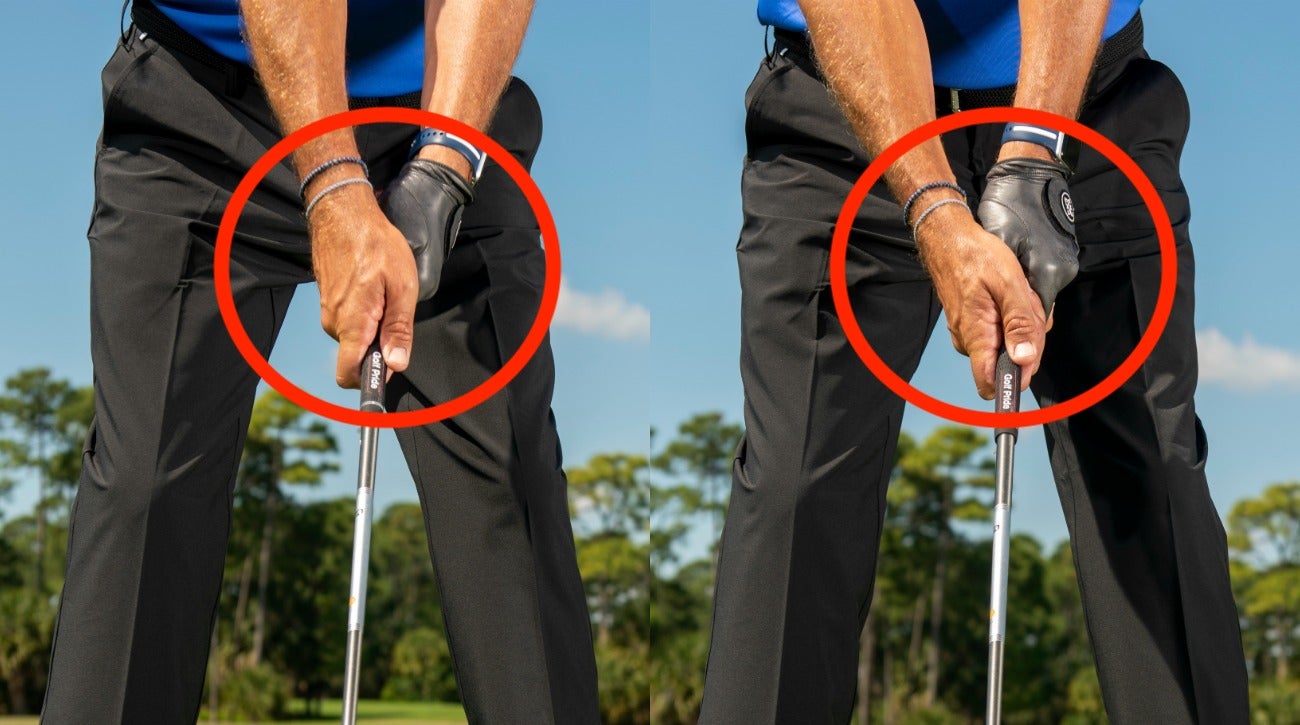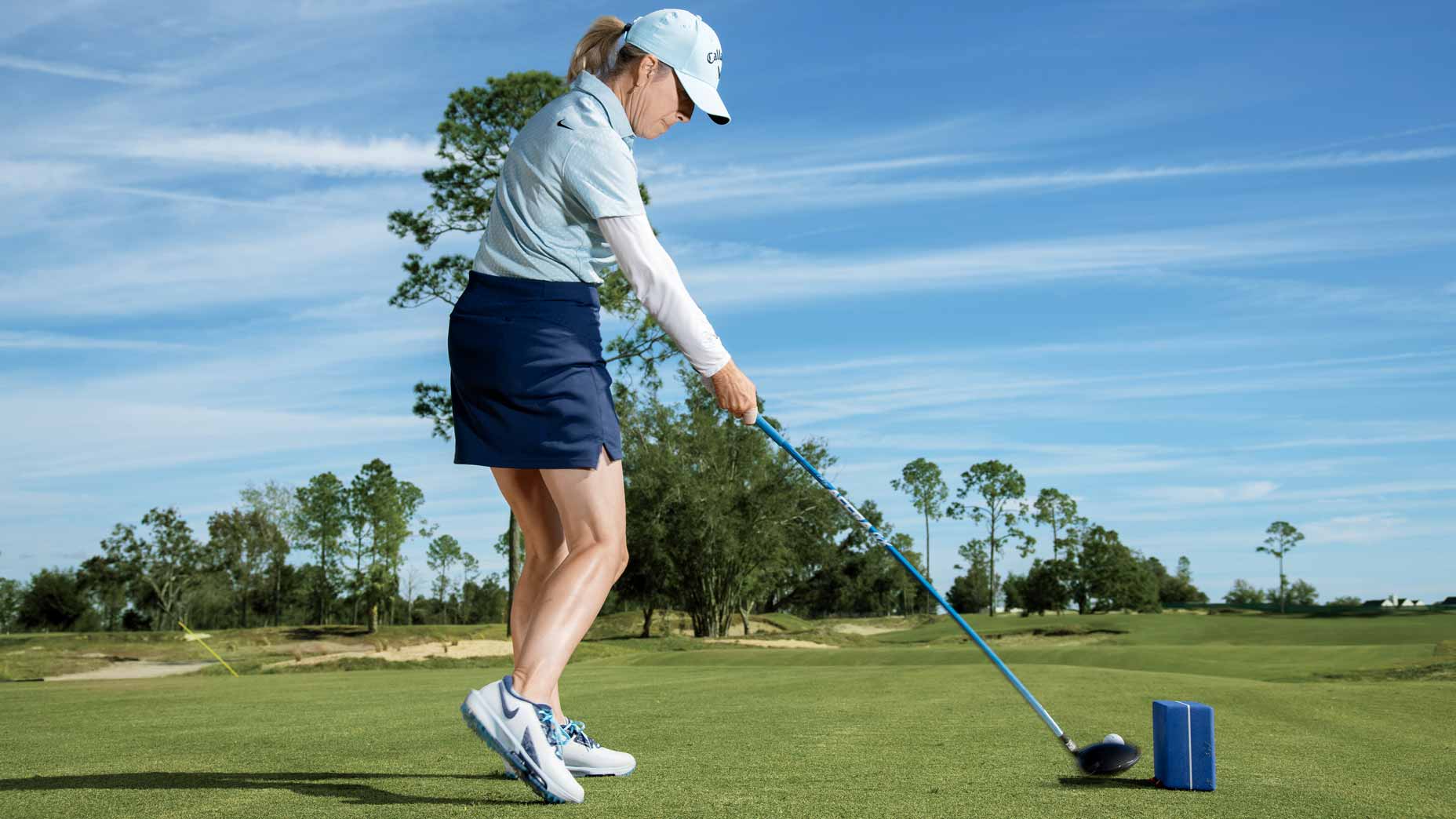 How Fred Couples swings fast while looking so smooth
How Fred Couples swings fast while looking so smooth
10 ways you’re losing power in your golf swing

Most golfers want more distance. But when they go chasing it, they often think about things they should do to their golf swing, rather than things they shouldn’t do. The truth is, for so many golfers, their golf swing is full of “power leaks,” moves that are an unnecessary waste of energy and result in slower swing speeds.
Often they’re quite subtle, but thanks to Top 100 Teacher Michael Hunt, we have a neatly-compiled list of common power leaks among recreational golfers. Read closely in case one of them sounds like you.
1. Grip in your palm
A poor or mismatched grip — including one where the club is too in the palms of your hands — can cause all sorts of issues. It can have detrimental effects on things like wrist hinge and swing path, which will hinder your power.
How to get a balanced, centered setup position to start your golf swing
2. Too much tension
Excess tension will restrict your ability to move freely and fluidly.
3. Roll clubface open in the takeaway
Rolling the clubface open early on your takeaway is a common cause of a power-killing slice.
4. ‘Casting’ the club
When golfers throw the clubhead to start the downswing, instead of pulling down with their arms, at the top of the backswing, it’s called “casting.” Here’s a drill to fix it.
5. Off-center hits
Many golfers think swinging faster is the only way they can hit it longer. But truthfully, better contact — even if it means swinging the golf club a little slower — will often result in longer drives.
6. Club path too severe in either direction
When the club moves too out-to-in or in-to-out, it can cause series directional issues and prevent you from hitting the ball in the direction you actually want.
7. ‘Scooping’ at impact
It can often be the result of casting, but when the clubhead passes the hands too early, you add too much loft to the club and lose distance as a result.
8. Poor Balance
Maintaining your balance throughout your swing will allow you to apply power from the club to the ball, instead of wasting your energy trying to stay upright.
9. Poor weight shift
If you’re not shifting your weight enough — or “sliding” it around too much — it messes with the sequence of your downswing, which makes it less efficient and powerful.
10. Lack of flexibility
The golf swing is essentially a series of turns and extensions. If you can’t turn or extend your body effectively, you’ll struggle to create leverage.
To receive GOLF’s all-new newsletters, subscribe for free here.
ADVERTISEMENT
ADVERTISEMENT





